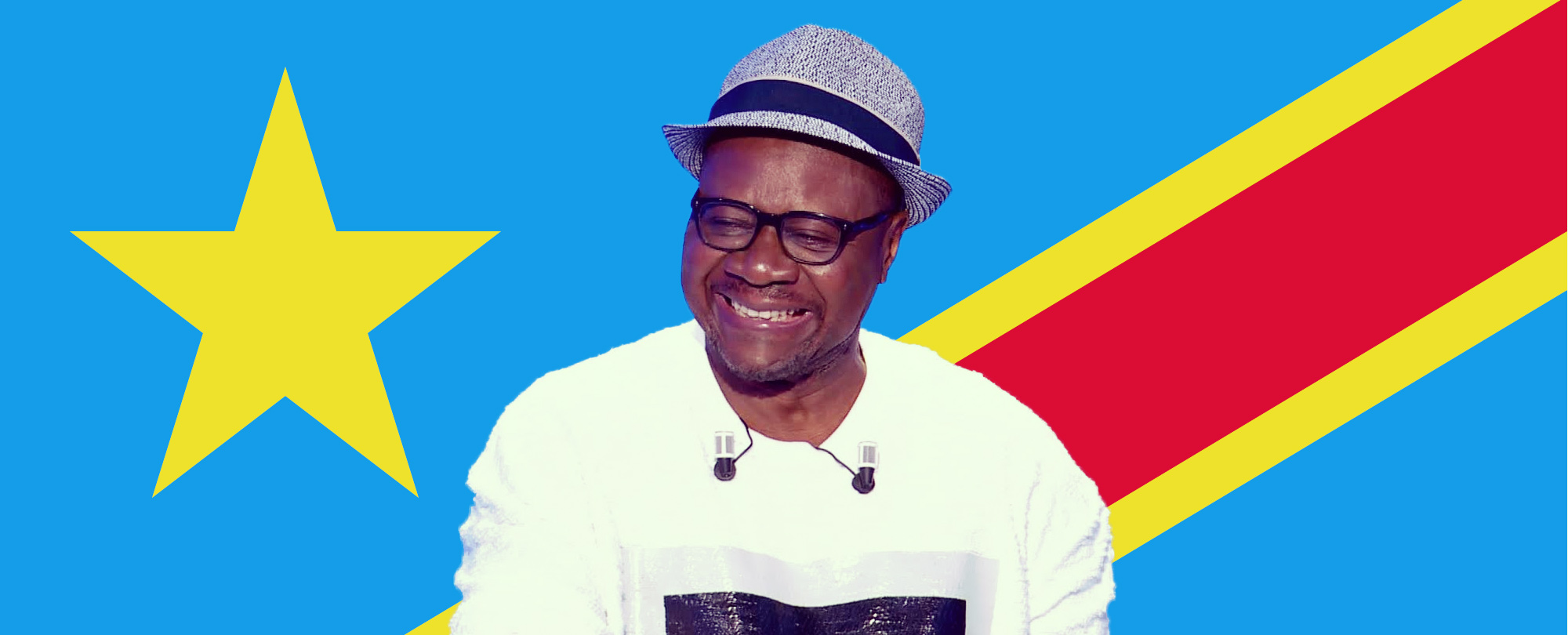Today, Papa Wemba passed away during a concert in Abidjan. A Congolese, African, and world music icon, he left us doing what he will always be remembered for: mesmerising performances, rumba, soukous, and his contagious joy of life.
My dad first introduced me to Papa Wemba’s album Pole Position, and I would often spend Sunday mornings listening to his music with my family. Growing up in Germany, his music helped me, and many other members of the diaspora, to stay connected to our roots, and give Congolese culture an international platform.
This #Last image of #PapaWemba.. before he exited the scene. #Abidjan. pic.twitter.com/OYPiDrJDMd
— Nnenna (@nnenna) April 24, 2016
Papa Wemba was born on June 14, 1949 as Jules Shungu Wembadio Pene Kikumba, in what was still the ‘Belgian Congo’. His mother, whom he counts as one of his biggest influences, was a ‘pleureuse’, hired to sing at funerals, and his music is also shaped by his involvement in the choir of St. Joseph’s Roman Catholic Church in Kinshasa. Papa Wemba was thrust on the national stage, during the late 1960s, an era, characterised by several overlapping political, cultural, and social dynamics such as ‘l’authenticité’, and an era of Congolese rumba, which profoundly shaped the trajectory of Congolese, and African music for decades to come. Music was a space of negotiating the political and the cultural, and according to Cameroonian philosopher Achille Mbembe, ‘It became a vehicle for commenting on morals and an engine for social satire, a repository for discourse on virtues, vices and passions – pride, hate, envy and idleness, ugliness, deformities, greed and sexual predation.’
Papa Wemba joined the group Zaiko Langa Langa, and composed several of the group’s most famous songs, including Liwa Ya Somo, Pauline, and C’est La Vérité. He then briefly performed with Iisfi Lokole, which produced songs like Belobi and Soyotina. He went on to found the artist commune Molokai in Kinshasa, and launched his own group Viva La Musica in 1977, which produced many of Congo’s biggest emerging stars.
Papa Wemba was always aware of his audience being able to draw on different styles to produce music geared either to Congolese, or international audience.
According to Mbembe, Wemba’s disruptive dynamic embodied the Congolese musical scene through ‘the recurrent splintering of groups, along a continuum fuelled by the power of imitation, inter-textual borrowings and never-ending reinterpretations.’
After discovering the possibility to promote his music beyond Kinshasa, his travels in Africa, and stays in Paris, exposed him to new ways of imagining Congo. He personified the youth movement SAPEUR (société des ambianceurs et des personnes élégantes), and his support for Mobutu’s Africanisation shifted towards defiance, as his extravagant, flashy clothing broke the Zairian dressing codes, signifying both a cultural, and political shift. He was also influenced by soukous, whose faster version Ndombolo currently dominates dance floors all across Africa, and also collaborated with Koffi Olomide in the album Wake Up.
In 1987, Viva La Musica permanently moved to Paris, and in the 1990s, as international audiences were more exposed to African music, Papa Wemba became an international star, known for hit such as such as Show Me The Way. He worked with star-musicians such as Youssou N’Dour, Peter Gabriel, Stevie Wonder, Eric Clapton, and Lucky Dube.
Papa Wemba will be remembered for his uniqueness, his high-pitch voice, his pride in Lingala.
Papa Wemba was always aware of his audience being able to draw on different styles to produce music geared either to Congolese, or international audiences, but also transcending these differences and producing works such as M’zée Fula Ngenge (The Sage Who Breathes Happiness). He also appeared in the film La Vie Est Belle, won several prices such as the Africa Music Prize, and in his song Esclave, Wemba joined other African musicians in taking a strong stance against apartheid. Considering his discography, and audience, it is hard to choose his ‘best works’, but my favourites include Pole Position, Molokai, and Nouvelle Ecriture.
Papa Wemba will be remembered for his uniqueness, his high-pitch voice, his pride in Lingala, his flamboyance, his multiplicity, his controversies, his cultural statements, his humour, but most importantly for his joy for life. But today, he leaves his family, the DRC, and the whole world mourning one of Africa’s greatest musicians. On social media, it is great to see that Africans from countries such as South Africa, Kenya, Nigeria, and the United States have joined the Congolese in mourning one of theirs.
